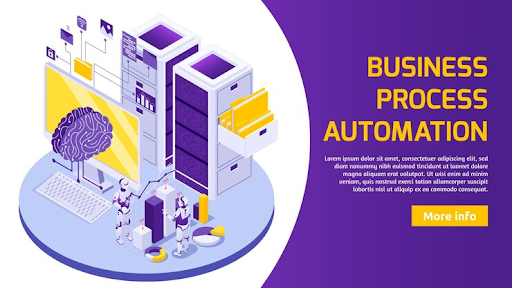
Businesses are under immense pressure to adapt quickly, innovate continuously, and stay ahead of the competition. One of the most significant enablers of this transformation is automation. By leveraging automation professional services, businesses can streamline processes, reduce costs, and enhance efficiency, all while driving digital transformation.
Digital transformation is no longer a buzzword; it is an essential strategy for businesses to stay relevant in today’s tech-driven world. However, achieving successful digital transformation requires more than just the adoption of new technologies—it demands a complete overhaul of systems, processes, and mindsets. Automation professional services play a pivotal role in this process, offering solutions that enable organizations to harness the full potential of their digital initiatives. Auxiliobits provides expert automation solutions that help businesses optimize their processes, streamline workflows, and drive digital transformation, ensuring they stay ahead in an increasingly competitive landscape.
What Are Automation Professional Services?
Automation professional services are specialized offerings provided by expert service providers to help businesses automate repetitive tasks and complex workflows. These services typically include consulting, implementation, optimization, and support, enabling organizations to integrate automation technologies into their operations seamlessly.
The primary objective of automation professional services is to help businesses reduce manual intervention, eliminate errors, enhance operational efficiency, and improve scalability. These services cover a wide range of automation tools, including robotic process automation (RPA), AI-driven automation, workflow automation, and business process management (BPM).
How Automation Professional Services Drive Digital Transformation?
1. Enhancing Efficiency and Productivity
One of the most significant ways automation professional services drive digital transformation is by increasing operational efficiency. Automation allows businesses to replace manual, repetitive tasks with intelligent, software-driven processes. Tasks that would otherwise require significant time and resources—such as data entry, report generation, or customer service inquiries—can be performed faster and with greater accuracy through automation.
For example, in the finance sector, automation can streamline processes like invoice processing, reconciliation, and financial reporting. By using robotic process automation (RPA) to handle these tasks, businesses can drastically reduce processing time, lower human error, and free up employees to focus on higher-value activities. This boost in productivity allows companies to scale their operations more efficiently and allocate resources to strategic initiatives, ultimately contributing to digital transformation.
2. Improving Accuracy and Reducing Human Error
Human error is inevitable, especially in complex, high-volume tasks. Mistakes can lead to significant operational disruptions, loss of revenue, and poor customer experiences. Automation professional services reduce the likelihood of errors by enabling systems to handle routine tasks with precision.
For example, in healthcare, automation can improve patient data management, reducing the risk of incorrect diagnoses or billing errors. By automating the entry of patient information and coordinating data across multiple systems, healthcare providers can ensure the accuracy of critical data, enhance decision-making, and improve patient care. This level of accuracy not only drives digital transformation but also establishes trust and reliability in the systems and processes that businesses rely on.
3. Fostering Innovation and Agility
In today’s fast-paced business environment, companies must be able to adapt quickly to changing market conditions and customer demands. Automation professional services provide the flexibility and scalability needed for organizations to respond swiftly to new opportunities and challenges.
With automation tools in place, businesses can adapt their processes more easily, implement new technologies faster, and drive innovation with less risk. For instance, when an organization implements automation to handle customer service inquiries, it can quickly scale its operations to handle higher volumes without the need to hire additional staff. This flexibility enables companies to remain agile in an increasingly competitive landscape, accelerating their journey toward digital transformation.
4. Cost Reduction and Resource Optimization
Cost-efficiency is one of the primary drivers of automation adoption, and professional services can help organizations achieve substantial savings by optimizing their existing resources. By automating mundane and repetitive tasks, businesses can reduce the need for a large workforce dedicated to low-value tasks.
For example, in manufacturing, automation can help reduce operational costs by optimizing production workflows, improving inventory management, and minimizing waste. By automating these aspects, companies can achieve cost savings that can be reinvested into other strategic initiatives, such as R&D, marketing, or product innovation. These savings contribute to the overall success of the digital transformation process, as businesses become more efficient and financially sustainable.
5. Enabling Data-Driven Decision Making
In the digital era, data is a valuable asset, and businesses that can analyze and leverage it effectively have a competitive edge. Automation professional services enable organizations to collect, analyze, and process vast amounts of data with minimal human intervention.
By automating data collection and analysis, businesses can generate real-time insights that support data-driven decision-making. For instance, automated analytics platforms can process customer data, sales metrics, and market trends, providing decision-makers with actionable insights on how to improve products, services, and customer engagement. This capability empowers businesses to make informed decisions, accelerate innovation, and optimize their digital transformation efforts.
6. Enhancing Customer Experience
Customer experience is at the heart of digital transformation. Automation professional services help businesses improve customer interactions by providing faster, more personalized service. Chatbots, automated email responses, and AI-driven recommendation engines are just a few examples of how automation enhances the customer experience.
For example, businesses in the e-commerce sector can use automation to offer personalized product recommendations based on a customer’s browsing history and preferences. By delivering a more tailored experience, companies can increase customer satisfaction, drive loyalty, and ultimately enhance revenue streams. Automation, in this context, serves as a critical tool for digital transformation by optimizing the customer journey and fostering long-term relationships.
7. Accelerating Time-to-Market
In today’s competitive environment, speed is crucial. Companies must bring products and services to market faster to stay ahead. Automation professional services help businesses accelerate their time-to-market by automating processes related to product development, testing, and deployment.
By reducing manual intervention and accelerating workflows, businesses can achieve faster turnaround times and become more responsive to market demands. Similarly, in automation in healthcare, automating processes like patient data management and appointment scheduling can accelerate service delivery, ensuring healthcare providers meet the growing demand for efficient and timely care.
Conclusion
Automation professional services are a powerful catalyst for digital transformation. By streamlining processes, improving accuracy, fostering innovation, and driving cost efficiency, these services help businesses stay competitive in the digital age. Whether through enhanced productivity, data-driven decision-making, or improved customer experience, automation plays a pivotal role in shaping the future of business.
As organizations continue to invest in automation, the digital transformation journey becomes more efficient, effective, and impactful. Those who embrace automation today will be better positioned to thrive in the rapidly changing digital landscape of tomorrow. Auxiliobits is at the forefront of providing top-notch automation professional services, helping businesses harness the full potential of automation to fuel their digital transformation and remain competitive in their respective industries.








